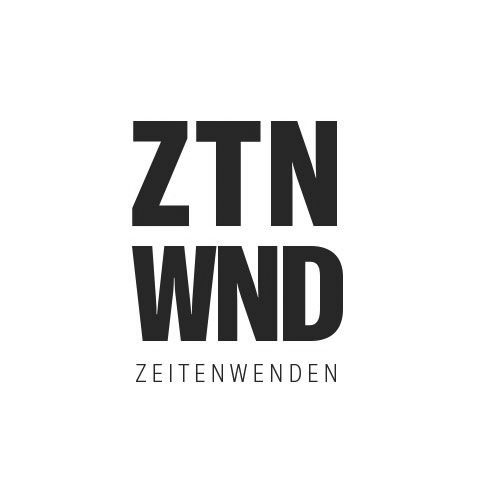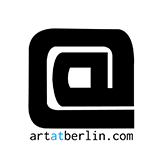The Ernst Schering Foundation presents the exhibition Labor Lab by Sarah Ancelle Schönfeld. In her first institutional solo exhibition in Berlin, the artist is showing an experimental photographic work. This is created by dripping various liquids, including dissolved hormones such as oestrogen, oxytocin and testosterone, onto exposed photographic negatives. Schönfeld also uses hormone-containing drugs from reproductive and obstetric medicine such as the contraceptive pill, the abortion pill and the so-called “morning-after pill”. The substances used relate to the facets of reproductive functions and their manipulative control. The exhibition will be on display from September 12 to December 1, 2024.
Image above: Sarah Ancelle Schönfeld, Labor Lab/Pille, Östrogen und Gestagen auf belichtetem Fotonegativ, vergrößert als C-Print, 2024 Photo: © Sarah Ancelle Schönfeld und VG Bild-Kunst, Bonn, 2024
With Labor Lab, Sarah Schönfeld provides an insight into the body’s inner processes. She uses photochemical processes to make these visible. The resulting abstract images not only sharpen visitors’ awareness of gender-sensitive areas of medicine, but also provide a starting point for social debates. Schönfeld focuses on what the reproductive female body achieves and the transformative power that women possess. Socio-politically relevant questions arise: How do we view the so-called achievements of reproductive medicine today, especially the pill, which was once seen as a symbol of female emancipation? How does the discourse on motherhood change when the right to abortion is renegotiated?
Schönfeld’s photographic works are embedded in an installation in the exhibition space of the Ernst Schering Foundation that oscillates between laboratory and living room. Visitors enter the room through a curtain and find themselves on a kind of stage – a soft, flowing, white spatial continuum: carpet covers the floor, individual sections of wall and architectural elements such as the dominant column placed in the center of the room. The photographs lean against walls, hang on supports and appear at various points in the room. They can be experienced in a dynamic structure of image and reflection, created by the mirrored frames.
In the works, abstract formations intertwine with the reflections of the visitors, so that works and bodies enter into a dialog and the viewers themselves become part of the artistic work. The visitors and their personal appearance and life realities are thus integrated into the exhibition. In addition, the pictures invite visitors to read and view them in very different ways due to their ambiguity, openness and multifaceted references to medical, social and individual issues. Questions such as “What do I see?” and “What associations does this evoke?” open up access from a purely scientific, fact-based perspective to a personal and poetic reflection.
In the Labor Lab series of works, Sarah Schönfeld once again draws on the chemical level of photography. In 2013, the artist had already presented the work All you can feel, which was based on a similar principle: Here, performance-enhancing and endogenous substances, some of which are widely used as illegal party drugs and others as therapeutic agents, reacted with the photo emulsion of an exposed photo negative. The result of the photochemical reaction was made visible by the artist through reproduction and enlargement. In 2013, All you can feel sparked lively debates about the effect and influence of drugs on consumers. On the one hand, it is affirmatively argued that drug use potentially expands consciousness and perception. On the other hand, there are warnings against drug intoxication because it alienates sensory perception and modifies thinking and feeling. Labor Lab raises other, albeit similarly controversial and complex questions, which, however, concern less the area of one’s own consciousness than that of the female organism and its regulation.

Accompanying events
26.09.2024, 6 pm: Being a woman then and now. On the struggles and achievements of female self-empowerment, discussion between Dr. Kathrin Rottmann, art historian, Ruhr University Bochum, and the artist, moderated by Dr. Christina Landbrecht.
28.11.2024, 6 pm: The Changing Pill: How safe and self-determined is it really?, lecture by Prof. Dr. Mandy Mangler, Chief Physician for Obstetrics, Vivantes-Auguste-Viktoria-Klinikum, Berlin followed by a discussion with Sophia Wagemann, Research Associate, Leipzig Lab “Global Health” / Charité, Berlin.
Further information can be found on our website www.scheringstiftung.de
The Ernst Schering Foundation was established in 2002 and serves to promote science and culture with a focus on the life sciences and contemporary art. A particular focus is on projects in borderline areas, especially at the interface between science and art. In addition to the foundation’s operational work, the Ernst Schering Foundation supports scientific and cultural education projects for children and young people.
WHEN?
Opening: Wednesday, September 11, 2024, 6-10 p.m.
Exhibition dates: Thursday, September 12 – Sunday, December 1, 2024
Opening hours: Thursday and Friday, 1 – 7 pm, Saturday and Sunday, 11 am – 7 pm
WHERE?
Schering Stiftung
Unter den Linden 32-34
10117 Berlin
COSTS?
Free admission






